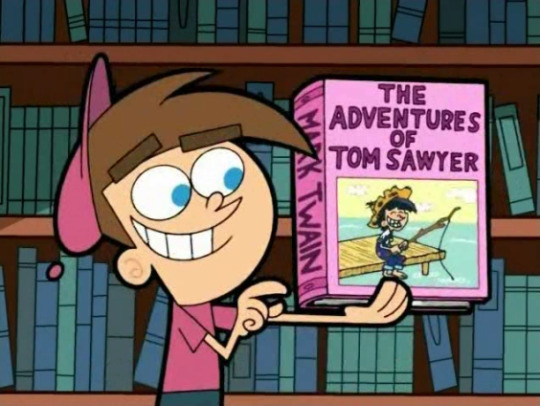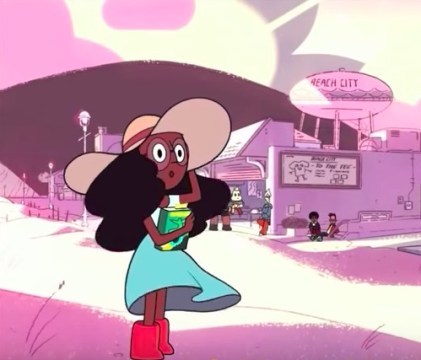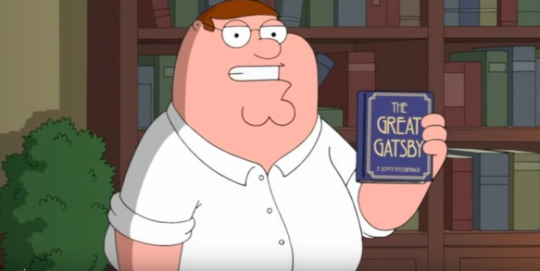#the guy's always been over powered. I am not making the Bugs Bunny parallel for no reason.
Explore tagged Tumblr posts
Text
Y'know ppl can say what they want about Luffy's Gear 5th and how he's overpowered and what not but....
The fact that his awakened fruit basically just makes him a human Bugs Bunny who very much also embodies freedom is so perfect I could cry every time I think about it...(I love it because...Luffy doesn't have a big imagination, but he is creative and very literal which is why cartoons are his best fit)
I mean I'm re-reading Wano and like he's so cute and happy and fluffy while altering all the laws of physics.
Bonus point for this

The little heart when escaping Kaido kills me every time🥰
Also the way he affects his allies but not his enemies (showed in the eye bulging)


Look at my baby 🥰🥰🥰🥰🥰

All of those are from chapter 1045
#One Piece#Monkey D. Luffy#I am only half biased because my mom loved Luffy and I know she'd have loved this for him#OP 1045#Also complaining he's overpowered when the guy breezed through East Blue and had his first hard fight around chapter 180 seems like a joke#the guy's always been over powered. I am not making the Bugs Bunny parallel for no reason.#Like if OPness was an actual problem how did you survive 1100 chapters of this#And yes it also parallels stuff like most cartoonish series including Toriyama's whole body of works Obviously
26 notes
·
View notes
Text
Eight Literary Allusions in Cartoons: Celebrating National Book Lover's Day
It's National Book Lover's Day, an official-unofficial holiday celebrating literacy and books. People often mistakenly believe that real readers only read novels, especially the literary classics such as The Scarlet Letter or Oliver Twist. That's not strictly true. Whether you read comics or novels, literary classics or fantasy, you are a reader. Books have been opening doors and inspiring people for ages, with broader audiences in the decades since the invention of the printing press in 1440.
In celebration of literacy, here are 8 (because it's August!) cartoons with allusions to some great books! I included a few anime, but unfortunately, my knowledge of Japanese novels and literary works is fairly limited at present. As a result, each of the included anime reference works that I am more familiar with, missing the boat on Japanese works entirely. I didn't find out about National Book Lover's Day until three days ago, otherwise there would be a wider variety of literary works from other cultures.
The Fairly Oddparents

Arguably one of the best episodes of Butch Hartman's ongoing series The Fairly Oddparents is "Shelf Life". I might be a little biased in this opinion, as the episode revolves entirely around books. With summer coming to a close, Timmy realizes with a shock that he forgot to complete his book report for Mr. Crocker's class. He dashes to the library and, to Wanda's perpetual irritation, tries to take the easy way out by wishing the book characters to life.
His misadventures lead to allusions from Sherlock Holmes, The Adventures of Tom Sawyer, Moby Dick, Frankenstein, Tarzan: Lord of the Drapes Apes, and other well known titles. Fortunately for Timmy, Hartman selected titles that many of his audience members would recognize, so he too was familiar with them.
Detective Conan

After the publication of Sir Arthur Conan Doyle's A Study in Scarlet in 1887, the popularity of mystery stories exploded. His works inspired decades of subsequent stories, including the anime series Detective Conan (名探偵コナン Meitantei Konan, with the dub title being Case Closed). This long-running mystery series follows high school detective and mystery enthusiast Shinichi Kudo as he works hard to build his reputation as a detective. Throughout the series, he makes many references to Sherlock Holmes, the famed fictional detective who inspires his work.
In the first episode of the anime, Shinichi gets in over his head following a criminal organization he knows nothing about. When they catch him, they use an experimental poison on him and run away. Instead of killing him, the poison shrinks him into a little kid. Later, he crafts a fake identity for himself under the name Conan Edogawa. He draws the first name from Doyle, and the last name comes from the pseudonym of an accomplished Japanese mystery novelist named Edogawa Ranpo.
Bonus: Kogoro Mouri, the bumbling detective who inadvertently takes Conan in and gains notoriety through Conan's crime solving, gets his name from the detective in Edogawa's novels, Kogoro Akechi.
Steven Universe


Rebecca Sugar packed her groundbreaking series full of subtle, sneaky book references. Many of these are visual, appearing without a word. The season one opening contains one book reference that is easy to miss. When the van zips past Connie by the Big Donut, she's holding a book in her hands. If you take a close look, the cover resembles one of the cover designs for Madeleine L'Engle's A Wrinkle in Time. In season two's opening, she's hauling around a different book. Can you recognize it?
Keep an eye on the backgrounds throughout the show, or you'll miss other great literary allusions. In the episode "Maximum Capacity," fans get a look at Greg's literary tastes (or maybe Rose's?). His repertoire includes The Lord of the Flies, among other titles. Another background book reference comes in at the end of "House Guest," where keen-eyed viewers might spot a volume of the Sailor Moon manga on Steven's nightstand.
Read or Die (R.O.D.)

In every iteration of the story, R.O.D. follows operatives working for the Special Operations Division of the British Library who use their paper-based powers to fight the world's evils. Because of the nature of their work, the characters often find themselves interacting with novels. Notable works that appear in the series include Anne of Green Gables, Fahrenheit 451, and The Diary of Anne Frank.
Bob's Burgers

The incomplete book report trope comes in again in Bob's Burgers. Like Timmy Turner, Tina Belcher would rather have fun now and worry about her book report at the last second. In the episode "L'il Hard Dad," Tina's mother helps her fake a book report on Jack London's Call of the Wild. You don't have to be familiar with the novel to enjoy the episode, but anyone who has read it will enjoy how hilariously inaccurate their makeshift story is.
Honorable mention goes to "The Frond Files" in which Gene livens up a few literary works with farts. In his telling of the Frond story, Tina, Louise, and Gene can be seen holding three books: Are You There, God? It's Me, Fart; Huckleberryfart; and Fahrenheit Fart51 .
Family Guy

Considering that the Griffin family's dog Brian considers himself a connoisseur of literature, it should come as no surprise that the series contains ample literary allusions. What is surprising is that not every allusion comes from Brian himself. Seth MacFarlane manages to sprinkle literary works throughout the series in a wide range of situations. A few episodes even parody popular novels, including the episode "High School English." Peter finds himself locked in a family's home library waiting for the police to arrive after crashing his car into their home. In the meantime, he entertains himself (and the audience) by reading three literary classics often studied in high school English classes. He works his way through The Great Gatsby, The Adventures of Huckleberry Finn, and Of Mice and Men. The man reads astoundingly fast for someone who's infinitely short attention span regularly endangers his family.
Looney Tunes

Older cartoons also get in on the action of scripting scenes and entire episodes around literary works. In "Rabbitson Crusoe," Yosemite Sam finds himself marooned on an island with the antagonistic Bugs Bunny. Several references appear throughout the episode, including a nod to Moby Dick with the appearance of a fierce whale named Dopey Dick.
Another allusion appears in the episode "A Street Cat Named Sylvester." The title itself is the allusion, though the episode bares no resemblance to the play from which it gets its name.
Black Butler

Fans of German literature might recognize the parallels between Black Butler (黒執事 Kuroshitsuji) and the legend of Faust. In the legend, a dissatisfied scholar named Faust makes a deal with the devil. He exchanges unlimited knowledge for his soul. In the moment, he is more concerned with gaining the power of knowledge than with the inevitable future that awaits him. Several versions of the story exist in the literary archives, with Johann Wolfgang von Goethe's perhaps being one of the more widely known version today.
In Black Butler, a boy named Ciel Phantomhive exchanges his soul for the unfaltering services of a demon while he works to claim vengeance for violent crimes committed against him (and his family). To cement the allusion, a demon named Claude Faustus appears later in the series.
Those are all of the literary allusions that I have for you today. Do you have a favorite that didn't make the list? Share it in the comments! You can also connect on Twitter at @Popliterature, or send a message.
And as always, if you have a literary device you want to know more about, or a game, comic, show, or movie that you want to see make an appearance on the blog, leave a shout-out in the comments!
#literary allusion#literary study#literary studies#national book lover's day#national book lover's day 2017#book#books#read#reading#animation#cartoons#anime#allusion#english language arts#english class#english class help#black butler#kuroshitsuji#case closed#detective conan#family guy#read or die#R.O.D.#looney tunes#bob's burgers#steven universe#the fairly odd parents#literacy#literacy matters
0 notes